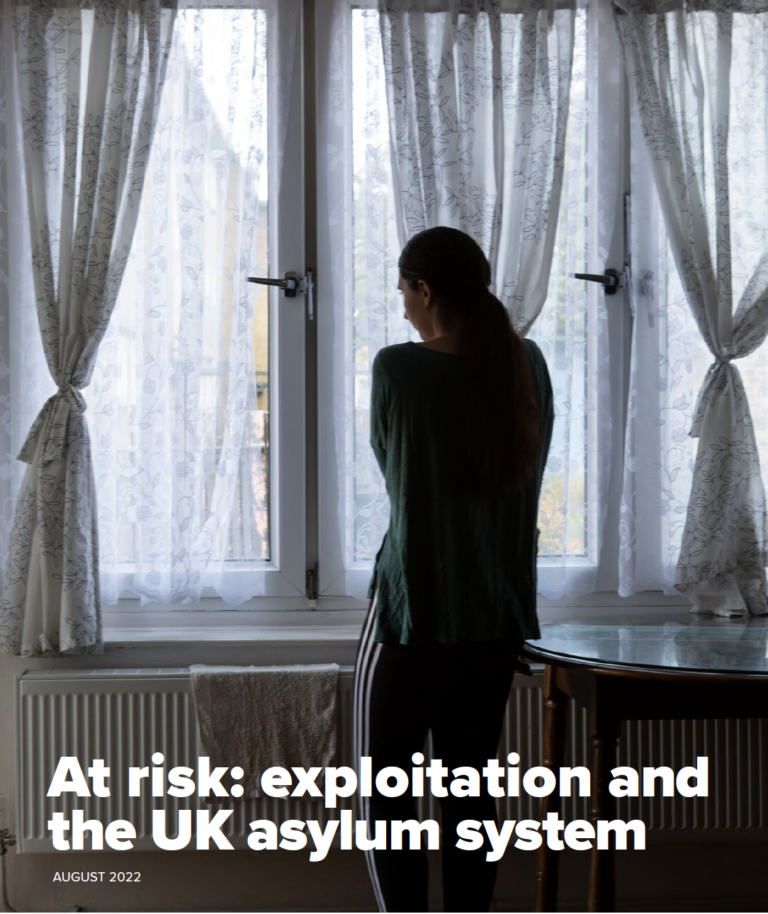The British Red Cross and UNHCR report, At risk: exploitation and the UK asylum system, finds that people seeking asylum in the UK are at risk of exploitation and have been exploited in the UK.
When people are forced to flee, they leave behind more than their homes. They lose their community support networks and become socially and culturally isolated. They can no longer access basic resources and work opportunities and ways to support themselves and their families.
Depending on where they are seeking safety, they may not have a secure immigration status and the safety that can bring. These and other factors leave refugees and people seeking asylum at serious risk of exploitation and human trafficking.
Risks of exploitation and human trafficking increase in times of conflict and displacement. But they can also be a dangerous and harmful reality for refugees and asylum-seekers, after arrival in the UK.

